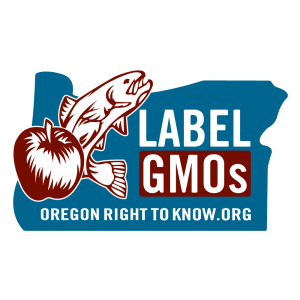03
Oct
Consumer Cost for GE Labeling Found To Be Minimal
(Beyond Pesticides, October 3, 2014) A new analysis of published research finds that the median cost to consumers of requiring labeling of genetically engineered (GE) food is $2.30 per person annually. The report, commissioned by Consumers Union, the policy arm of Consumer Reports, and conducted by the independent Portland-based economic research firm, ECONorthwest, arrives amidst the highly contested GE labeling initiative on Oregon’s November election ballot, Measure 92. Proponents of labeling say that the new research disputes claims made in ads opposing the initiative, which claim that labeling will force farmers and food  producers to spend “millions” and increase food costs for consumers.
producers to spend “millions” and increase food costs for consumers.
Consumers Union is a strong supporter of Oregon’s GMO labeling ballot initiative. “Given the minimal cost to consumers, the increased herbicide use involved in growing almost all genetically engineered crops, as well as the failure of government to require human safety assessments before genetically engineered foods reach the marketplace, GMO labeling is well worth it,” said Jean Halloran, Director of Food Policy Initiatives at Consumers Union. “Companies change their labeling all the time and with GMO labeling costing so little, it is likely some producers won’t even bother to pass the minimal increase on to consumers.”
The group also takes issue with the assumptions made by industry-funded studies that it says have overestimated the cost of similar GMO labeling proposals in California, Washington and New York-putting the cost at $100-$200 annually (or $400-$800 for a family of four). “Industry cost estimates incorporate unrealistic assumptions about how GMO labeling requirements will drive food producers to switch to all organic ingredients, which would be much more expensive. However, there is no factual basis for this assumption and we believe producers will continue to sell GMO foods once they are labeled, and many consumers will continue to buy them, with no discernible price impact,” asserts Ms. Halloran. “Measure 92 simply requires foods that contain genetically engineered ingredients to be labeled so that consumers can make an informed choice.”
Genetically engineered foods are already required to be labeled in 64 foreign countries, including many where American food producers sell their wares. Labeling has not increased food prices in those countries, according to Consumers Union. Across the U.S., grassroots pressure pushed the introduction of GE labeling legislation in over 25 states, with GMO labeling requirements on the ballots for both Oregon as well as Colorado in November. A national GE labeling bill also remains in both houses of Congress, but has yet to be voted on in committee in either the Senate or the House. National GE labeling efforts are being spearheaded by the Just Label It! Campaign and has garnered thousands of supporters across the country.
So far, there has been one state victory in Vermont, with a law passed requiring foods to be labeled by July 2016. However, the state is currently involved with a legal battle by major trade associations, including Grocery Manufacturers of America (GMA). In a statement, GMA has called the labeling requirement “a costly and misguided measure that will set the nation on a path toward a 50-state patchwork of GMO labeling policies that do nothing to advance the health and safety of consumers.” Other states to pass legislation include Maine and Connecticut; however, these states contain a “trigger clause” that delays implementation until similar legislation is passed in neighboring states, including one bordering state in the case of Connecticut, with an aggregate population of 20 million. Both California and Washington state labels in recent years but the proposals ultimately failed after millions of dollars of corporate spending entered the equation. Polls and surveys show overwhelming public support for labeling of genetically engineered foods, yet the same food and chemical companies continue to ignore consumers fight for the right to know every chance they get.
Beyond Pesticides believes that consumers have a right to know whether the foods they buy contain GE ingredients not only because of concerns over the safety of eating GE food, but also because of the direct and indirect effects of GE agriculture on the environment, wildlife, and the human health. GE agriculture is associated with the increased use of herbicides that GE crops are developed to tolerate. Repeated spraying of these herbicides, particularly glyphosate, the active ingredient in Roundup, destroys refuge areas for beneficial insects such as the Monarch butterfly, directly harms amphibians, and leads to resistance in weed species the GE technology was intended to control. With glyphosate resistance rampant, the agrichemical industry continues to resort to increasingly toxic combinations of chemicals, despite the presence of organic management practices that are more protective of human health and the environment and produce the same yield. Thus, for a multitude of reasons, consumers have the right to know the ingredients in the products they are purchasing.
Beyond labeling genetically engineered food, the best way to avoid food with GE ingredients is to buy organic. Under organic certification standards, GE organisms are prohibited. For this and many other reasons, organic products are the right choice for consumers. For more information on GE foods and labeling issues, see Beyond Pesticides’ Genetic Engineering website.
Source: Consumers Union Press Release, Reuters
All unattributed positions and opinions in this piece are those of Beyond Pesticides.










